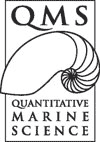
Postdoctoral researcher CSIRO Indian Ocean Marine Research Centre, Perth
One best thing for me is the course design of the program. As a student of QMS program, I need to take 8 additional courses about marine science. These courses are not only about my main research area – physical oceanography, but also about marine biogeochemistry, marine ecology, marine data analysis, and technical tools including remote sensing. These courses help me solid my foundations of physical oceanography as well as broaden my scientific minds about other research areas of marine science.
The other thing is that this is a joint collaboration program with CSIRO. In addition to UTAS and IMAS, this program also provides me with opportunities to be supervised and collaborate with wonderful researchers from CSIRO. This helps me to expand my research network.
The QMS program helps me to expand my research network, and develop good communication and collaboration skills. The knowledge I learnt from the QMS courses provides me with firm foundations of physical oceanography and climate data analysis, which makes me competitive at my current position. The knowledge I learnt from the courses also helps me to better understand how my own research area and projects work and interact with other research areas under the big topic, marine science.
I am currently a postdoctoral researcher working at CSIRO Indian Ocean Marine Research Centre, Perth, WA. And I am currently working on unlocking marine extreme predictability with artificial intelligence technology.